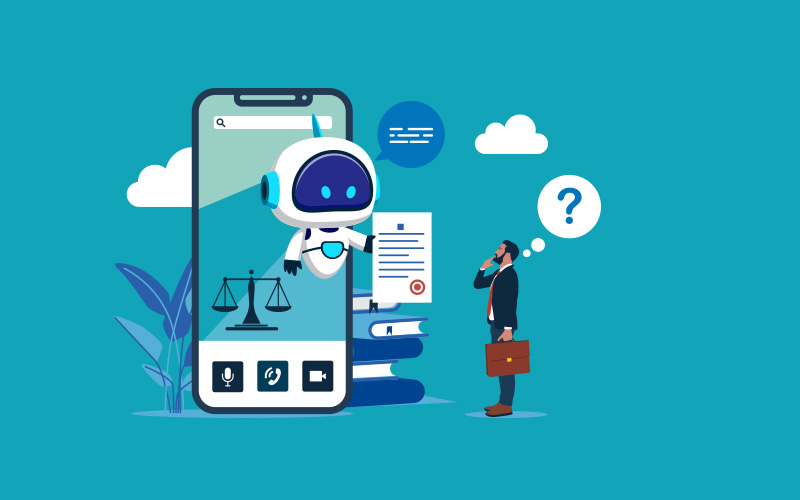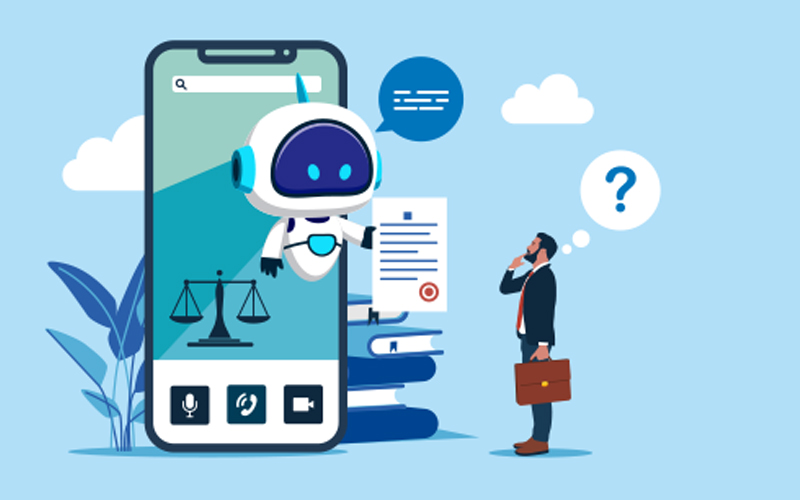Legal departments in many corporate organisations lack automation and integrated technology solutions. Owing to this, critical legal tasks, which require detailed document verification, are outsourced to legal process outsourcing (LPO) providers. With technology impacting all aspects of internal operations, advancements in artificial intelligence and data science have made LPO services more efficient.
Artificial intelligence (AI) and data science can be potentially used in the following areas in the realm of law:
- Contract review: Automating this process using natural language processing (NLP) can ensure the evaluation of proposed contracts in detail to determine the parts that are acceptable or unacceptable.
- Contract analytics: AI can tackle the problem of companies operating in the dark about their contractual ties. NLP solutions extract and contextualise critical contract information, thus simplifying commercial commitments to all stakeholders in the company.
- Predicting litigations: AI can be used to develop machine learning (ML) models to predict the outcome of pending cases, using relevant precedent and the facts of the case as inputs. This helps firms plan litigation strategies, expedite settlement negotiations and reduce the number of cases that go to trial.
- Legal/case research: Improvements in NLP can transform legal research by bringing up the most relevant facts, thus going beyond mechanical keyword matching.
- Automated image and text redaction: An AI-based redaction software or a pattern-based redaction tool can be used for redaction. This process is less time consuming and inexpensive when compared to manual redaction.
- Legal help through lawyer bots or chatbots: Bots can provide services online, which improves efficiency and turnaround speed.
From the perspective of the most useful features of AI and data science, data-driven decision making, predictive analytics and automation are influencing the future of LPO providers who provide several of the above-mentioned services.
Data-driven decision making
LPO providers can leverage advanced data analytics tools to provide insights into large amounts of legal data. The insights are used by law firms to identify patterns, make informed decisions, and mitigate risks. AI and data science are also converging to provide sophisticated decision support systems. These systems analyse large amounts of data from court cases, judgements, legal and regulatory information, and case outcomes to assist in legal decision making. These systems provide more accurate legal advice to legal professionals, thus enabling informed decision making.
Predictive Analytics
LPO providers can analyse historical data using machine learning algorithms to forecast legal outcomes and case timelines and identify potential bottlenecks to facilitate strategic planning.
NLP is a part of machine learning that is used to process natural human language in text or voice. NLP employs sophisticated linguistic algorithms to comprehend and produce human language, enabling LPO in the following ways: (1) Streamlines legal research; (2) facilitates the review of large amounts of legal information, including the review of contracts and case law; (3) predicts rulings.
Knowledge graphs used for distant supervision in NLP tasks enable the sharing and utilisation of legal expertise. These knowledge graphs are constructed from court cases, judgements, laws, and legal documents to provide comprehensive legal knowledge. Professionals utilise these knowledge graphs in legal research and the development of legal arguments.
Automation
Automation can transform routine tasks in LPO, allowing professionals to focus on other activities such as strategy and client services. AI-driven automation streamlines tasks such as contract drafting and the assembly of legal documents. These automated document systems are capable of extracting information and populating templates in accordance with legal standards.
AI-powered chatbots can also automate routine tasks and provide 24-hour support to clients without professionals having to work overtime.
Thus, to summarise, these advanced technologies in LPO:
- Identify the minutest of information in the vast expanse of legal information
- Review and standardise documents better
- Provide greater access to legal information owing to automation
- Implement due diligence, contract review, contract drafting, document scrutiny, regulatory compliance, risk assessments and judgement predictions
- Handle customer interactions
While the benefits of implementing AI and data science in LPO far outweigh the challenges, the implementation is subject to the following challenges:
- Lack of proper systems and data: Outdated technology and systems are barriers to the use of AI in LPO.
- Cost: The use of current technology and systems necessitates significant financial commitment on the part of the LPO providers.
- Data privacy and protection: Owing to data security concerns, LPO providers must implement robust cyber security measures and invest in processes and technologies to comply with stringent data privacy regulations.
*For organizations on the digital transformation journey, agility is key in responding to a rapidly changing technology and business landscape. Now more than ever, it is crucial to deliver and exceed on organizational expectations with a robust digital mindset backed by innovation. Enabling businesses to sense, learn, respond, and evolve like a living organism, will be imperative for business excellence going forward. A comprehensive, yet modular suite of services is doing exactly that. Equipping organizations with intuitive decision-making automatically at scale, actionable insights based on real-time solutions, anytime/anywhere experience, and in-depth data visibility across functions leading to hyper-productivity, Live Enterprise is building connected organizations that are innovating collaboratively for the future.







